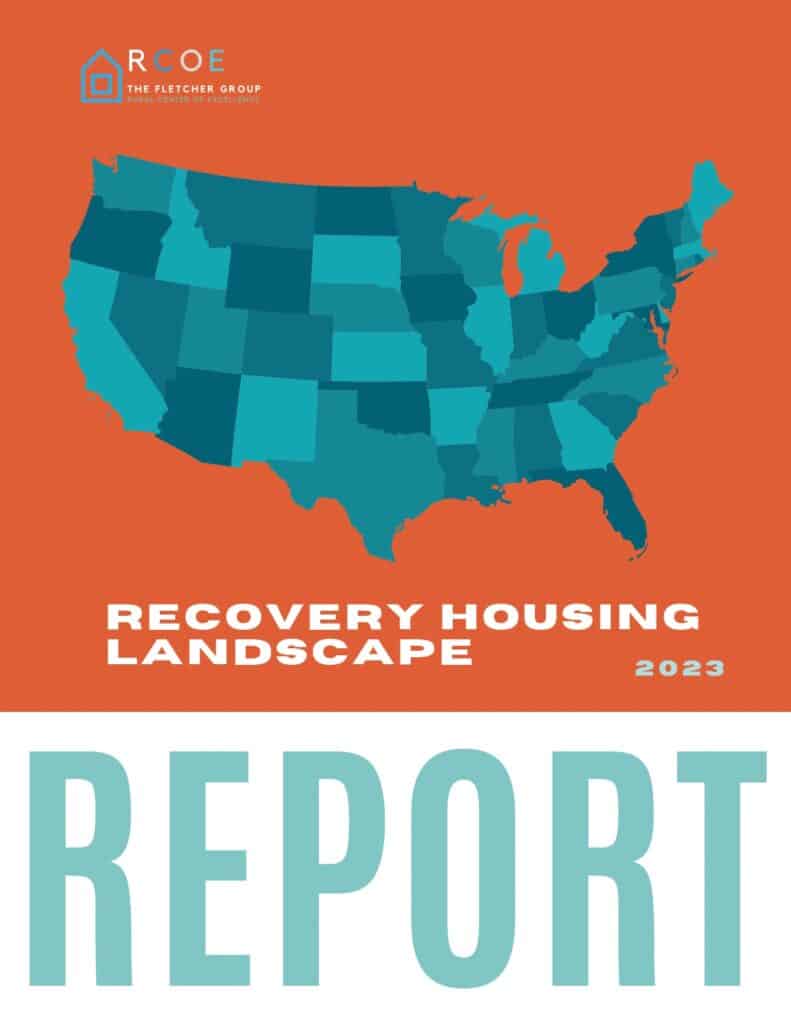
Indiana State Laws, Policies and Funding
RH terminology used by the Family and Social Services Administration (FSSA), Division of Mental Health and Addiction (DMHA) “Recovery Residence is an umbrella term that includes a range of alcohol and drug free living environments, including recovery homes and sober living homes, that use peer support and other supportive services, to promote addiction recovery.”
https://www.in.gov/fssa/dmha/addiction-services/recovery-residence-certification/
“Through Indiana’s Recovery Works voucher program, levels 2-4 recovery residences that receive criminal justice-involved referrals are eligible for vouchers for room, board, and per diem. This voucher-based system is intended to cover the cost of services for individuals without any alternate payer source (private insurance, Medicaid, and/or Healthy Indiana Plan (HIP) etc.).”
Accreditation, Certification, and State Licensing Requirement: NARR certification required for state funding and for referral to a home.
RH Law(s): SB 402 (2017) Recovery house certification and standards. Requires the secretary of family and social services to develop standards for residential care and supported housing for chronic addiction, when used as a recovery residence, to be certified when receiving reimbursement from the division of mental health addiction and meet standards established by the division of mental health and addiction through administrative rules.
https://iga.in.gov/documents/2416dae8
RH Legislation: None/unknown
Regulations: None/unknown
SABG Program: The “Planned Priority Areas” documents for your state’s Substance Abuse Prevention and Treatment Block Grant (SABG) program and Community Mental Health Services Block Grant (MHBG) program specifically mention recovery housing as a priority, nor do they list recovery support services as an allowable activity. To learn more about specific recovery housing activities that are eligible for funding through these grant programs, please reach out to your state’s Single State Agency (SSA) that’s responsible for administering these funds by visiting https://www.in.gov/fssa/dmha/index.html
According to WebBGAS, this state has indicated that it has established a revolving loan fund using SABG funds to develop RH for individuals in recovery.
SOR Program: Your state’s Department of Health and Social Services (DHSS) has previously funded recovery activities using State Opioid Response (SOR) funds. To learn more about specific recovery housing activities that are eligible for funding through this grant program, please reach out to your state’s Single State Agency (SSA) that’s responsible for administering these funds by visiting https://www.in.gov/fssa/dmha/index.html
Medicaid Funding: Nothing in the state Medicaid plan suggests direct support for RH, however, certain covered activities could evolve to be provided in RH settings include counseling, skills training and development, and case management.
NARR Affiliate Status: Yes, Indiana Affiliation of Recovery Residences (INARR)
Housing Assistance Funding: https://www.in.gov/ihcda/
Directory/Registry:
Certified Recovery Residences https://secure.in.gov/apps/fssa/providersearch/home/category/as
Indiana Funders
United Way of DeKalb County
United Way of DeKalb County is located in Auburn, Indiana, in rural DeKalb County. The foundation was established by DeKalb citizens in 1960, with Ms. Barbara S. Oren being a key founder and driving force behind the organization’s growth. United Way of DeKalb County is a member of the Indiana Association of United Ways and United Way Worldwide. The organization’s mission is to support the communities of DeKalb County.
Regions: The foundation serves rural DeKalb County, Indiana.
Issues Supported: The key areas of interest are human services, health, and education for groups such as children and low-income individuals. Particular areas of focus are early addiction treatment, childhood education, and childhood trauma.
Grant Process and Application: The Community Impact Grant program has four application deadlines per year, usually falling in August, November, February, and April. Visit the United Way of DeKalb website for more information about the grant application process.
Grant-Making Per Year: In FY 2020, the United Way of DeKalb County provided grants in the amount of $514,632.
Recovery and Supportive Housing Grantee Example: The Serenity House is a grantee located in Auburn, Indiana, in rural DeKalb County. The Serenity House offers five supportive homes for men and three homes for women recovering from substance use disorder.
Indiana Opioid Settlement Funds
Total Settlement Funds in Indiana
- $507 million
Fund Distribution
- 70% to an opioid abatement fund
- 15% to the state
- 15% to local governments
Timeline
- Funds from three distributors will be paid over 18 years
- Funds from Johnson & Johnson will be paid over 9 years
- Payments were projected to begin in May 2022
Application Process
- Not established
Key Contacts
- Office of the Attorney General Todd Rokita, 317-232-6201, Contact form
Key Links
How About Your County?
To get a quick overview of the resources available in your county, including gaps that may need to be addressed, visit the Recovery Ecosystem Index Map developed through a partnership between the Fletcher Group Rural Center of Excellence, the NORC Walsh Center at the University of Chicago, and East Tennessee State University.
Need More Info?

A year in the making by a staff of ten, the Fletcher Group’s 82-page Recovery Housing Landscape Report provides an in-depth overview of the most recent laws, policies, and funding affecting recovery housing. You’ll find sections devoted to state laws, SAMHSA funding, Medicaid, corrections, and housing assistance plus numerous links to valuable resources and official documents. To see the complete downloadable report, click the image to the left.
This web page is supported by the Health Resources and Services Administration (HRSA) of the U.S. Department of Health and Human Services (HHS) as part of an award totaling $13.7 million with 0% financed with non-governmental sources. The contents are those of the author(s) and do not necessarily represent the official views of, nor an endorsement, by HRSA, HHS, or the U.S. Government.